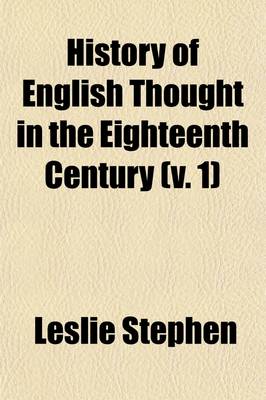Cambridge Library Collection - Philosophy
7 primary works • 8 total works
Volume 1
Volume 1
History of English Thought in the Eighteenth Century (Volume 1)
by Sir Leslie Stephen
Volume 1
Volume 2
Volume 2
History of English Thought in the Eighteenth Century Volume 2
by Sir Leslie Stephen
Volume 2
Volume 3
The English Utilitarians: Volume 3, John Stuart Mill
by Sir Leslie Stephen


